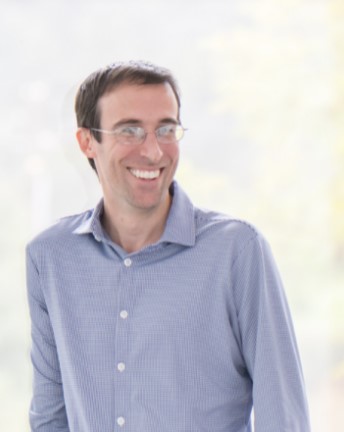325: No Pain…Plenty of Gain

Podcast: Download
There is a fine line between being a “quitter“ and a pragmatic individual navigating life.
Quitting has a very negative connotation in our culture. It’s un-American and is associated with weakness and lack of grit.
In reality however, quitting is often the best thing you can do and the sooner that you do it the better off you are. I’m a good example of a guy who has quit quite a few times and is much better off for it.
For example, when I was in medical school, I was a hardcore student. They used to call people like me gunners. I was intense about my studies and got myself involved with lots of research projects and became the favorite student of the neurosurgery department.
You see, at some point along the line I decided that I wanted to be a brain surgeon. I thought that the brain and the central nervous system were fascinating. In hindsight, however, I must admit that there were stronger drivers involved.
I saw brain surgery as the top of the medical pecking order. Of course the idea of being a brain surgeon also appealed to me because of the social bragging rights that came along with it. After all, most people outside of medicine are pretty impressed when you tell them that you’re a brain surgeon.
So, I did what I had to do to get into a neurosurgical residency. I graduated with honors for medical school and scored very high on the required board exam used to evaluate residents. I also published multiple book chapters and peer reviewed articles in neurosurgery before I finished medical school.
Because of that drive, I got into one of the top neurosurgery programs in the country that produced some of the most famous people in the profession. My grand scheme was working out beautifully.
Then it happened. I started the program and, to my surprise, I wasn’t really enjoying myself. Sure, I liked walking around with a white coat that said neurosurgery on it and tried to use it to impress cute nurses. I did feel pretty macho I must say.
But it was not enough to get over the fact that I hated the hours. Very early mornings and very late nights were the norm on non-call days. When on call, any emergency meant I was up all night operating. Bleeding brains can’t wait until the next morning.
Then, I would have a full day of surgery the next day that I had to be alert and attentive for and try to learn something along the way. Boy…I really hated that.
Curiously, I noticed that most of my fellow residents seem to get excited when the pager went off in the middle of the night. They got excited and filled with adrenaline when called to action—like Batman. Not me. When the pager went off in the middle of the night I would feel nothing but dread.
It took me midway through my second year of neurosurgical residency to figure out that this was not going to work out. So I quit.
At that point, I felt like I was in free fall. For years I had created this identity that I was living. It took thousands of hours to get there with lots of blood and sweat. Was it just a waste of time?
Well, It probably was a waste of time but it could have been worse. I could have stuck it out for another five years and been miserable the rest of the way. My attending professors didn’t seem to have such a great life either so it wasn’t like there was light at the end of the tunnel.
I ended up switching specialties and ended up in cosmetics (brains vs butts…what’s the difference?) And of course after a few years of that, quit medicine altogether. I guess it just wasn’t for me. Think of that for a moment. Four years of college, four years of medical school and seven years of postgraduate surgical training. And I just quit because I didn’t want to do it anymore. Liberating.
The moral of the story is that when you figure out that something is not working for you, move on quickly. It seems simple enough right? But how many people do you know who complain about their jobs every single day and talk about doing different things but never do?
Relationships are no different. You usually know within the first few weeks if there is long-term potential. However, rather than break it off quickly, people often drag out relationships for months or years trying to make it work and sometimes even get married!
Well, as a divorced guy, I’m not much of an authority on relationships. However, The larger theme here is quit while you are behind. Don’t prolong the pain. There is plenty of gain to be had without enduring pain.
My guest on this week‘s Wealth Formula Podcast is Steve Magness. He’s written a book that tries to explain why being tough and resilient is not always the right thing to do for an individual.
So, If you feel like a lab rat on a treadmill you’ll definitely want to tune in to the show!

Steve Magness is a world-renowned expert on performance. He is the author of the new book Do Hard Things: Why We Get Resilience Wrong and The Surprising Science of Real Toughness. He is the coauthor of Peak Performance. The Passion Paradox, and the author of The Science of Running. Collectively his books have sold more than a quarter-million copies in print, ebook, and audio formats.
Magness has served as an executive coach to individuals in a variety of sectors. His work serves on applying the principles of which he writes. In addition he’s served as consultant on mental skills development for professional sports teams, including some of the top teams in the NBA.
His writing has appeared in Outside, Runner’s World, Forbes, Sports Illustrated, Men’s Health, and a variety of other outlets. In addition, Steve’s expertise on elite sport and performance has been featured in The New Yorker, Wall Street Journal, The New York Times, The Guardian, Business Insider, and ESPN The Magazine.
Steve received his undergraduate degree from the University of Houston and a graduate degree from George Mason University. He currently lives in Houston, Tx with his wife Hillary. Once upon a time, he ran a mile in 4:01 in high school, at the time the 6th fastest high school mile in US history.
Shownotes:
- What is toughness?
- Toughness vs. resilience
- Steve’s book: Do Hard Things
- Why would anyone want to do something that seems daunting and hard?
 Send Buck a voice message!
Send Buck a voice message!



